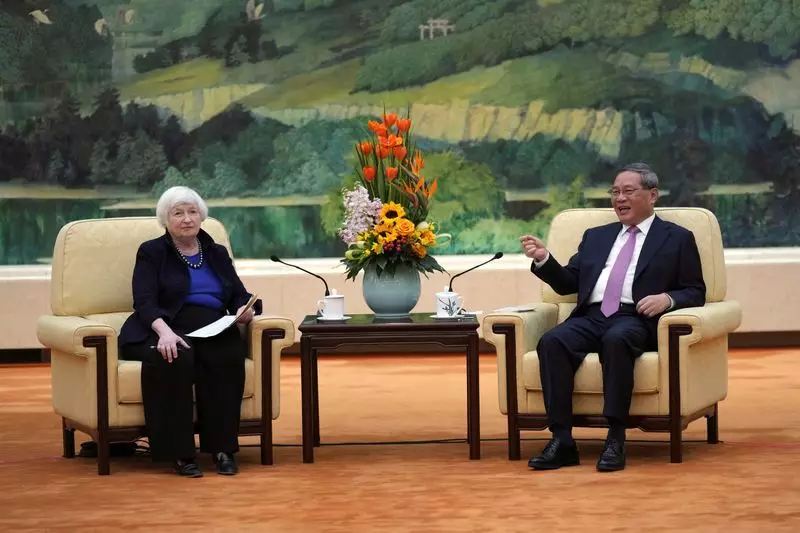The recent meeting between U.S. Treasury Secretary Janet Yellen and Chinese Premier Li Qiang highlighted the significance of having tough conversations between the two economic superpowers. Yellen emphasized that these conversations have put the U.S. and China on a more stable footing over the past year. Li, in response, stressed the importance of respecting each other and working as partners rather than adversaries. Both leaders acknowledged the constructive progress that has been made, underscoring the need for responsible management of their complex relationship.
Yellen’s focus on addressing China’s excess production of electric vehicles (EVs), solar panels, and other clean energy products has been a central theme of her recent visits to China. This issue has been a point of contention between the two countries, along with disagreements over Taiwan, COVID-19 origins, and trade disputes. Despite these challenges, efforts to normalise economic relations have been evident, with President Biden and President Xi Jinping engaging in discussions to manage tensions effectively.
In the southern export hub of Guangzhou, Yellen and Vice Premier He Lifeng agreed to launch a dialogue on “balanced growth.” This initiative aims to create a level playing field with China to protect U.S. workers and businesses. As the world’s two largest economies, the U.S. and China have a shared responsibility to manage their relationship responsibly and address global challenges collaboratively. The focus on balanced growth aligns with efforts to ensure fair competition and equitable outcomes for both countries.
China’s rapid growth in industries like electric vehicles has led to excess manufacturing capacity, especially in battery production. The Economist Intelligence Unit forecasts that China’s battery manufacturing capacity will surpass demand by a significant margin in the coming years. This surplus poses challenges for the industry and raises concerns about market stability. While China has invested heavily in cutting-edge technologies, including EVs, commercial spaceflight, and life sciences, the issue of excess capacity remains a point of contention in bilateral discussions.
Amidst discussions on excess capacity, Chinese state media have pushed back against criticisms from Yellen and others. State news agency Xinhua has argued that highlighting Chinese overcapacity serves as a pretext for protectionist policies that benefit American companies. The sentiment expressed by Xinhua reflects broader concerns about the impact of restrictive trade practices on global cooperation. Breaking down barriers and fostering mutually beneficial cooperation will be crucial in addressing these challenges effectively.
As the U.S. and China navigate their complex relationship, the need for open communication and constructive dialogue remains paramount. While differences exist between the two countries, finding common ground and working towards shared goals will be essential in overcoming challenges and building a more stable foundation for economic cooperation. The path forward involves continued engagement, mutual respect, and a commitment to addressing key issues through diplomacy and collaboration.


Leave a Reply